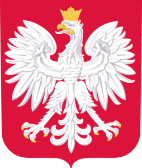HOME
Technical diagnostics dealing with the assessment of the technical condition of machines, becomes a tool for the transformation of the economy and environmental protection, It is also the basic tool for shaping the quality of industrial implementation processes, especially of operational systems.
Technical diagnostics enables the assessment of the current state and the prediction of this state for the purpose of assessing the task ability of the tested object. The difficult problem of inverse determination of the technical object condition is solved based on available energy, symptom or holistic models, each time on the basis of the acquired condition symptoms.
Technical diagnostics that allow to precisely determine the technical condition of the facilities creates the opportunity to achieve significant material and financial savings, to release parts of workshop maintenance and repair facilities for other purposes. Ultimately, it also allows the development of new strategies for the exploitation of machines, maintaining highly economical repair technologies and rational management of spare parts.
Technical diagnostics understood in this way in common use enables:
- objectivity assessment of the technical condition of the examined objects;
- determining the dates and scope of technical service and repairs;
- eliminating undefined equipment from operation, thus increasing the safety and efficiency of economic exploitation;
- controlling the effects of technology on production and the environment.
Most of these issues should be devoted to submitted papers, which will be published in the MATEC Web of Conferences (WoS) and delivered during the conference.
The materials of this conference will be a collection of peer-reviewed publications submitted for the XVII International Scientific Conference for years known as "Diagnostics of Machines and Vehicles".
The first meeting of this series took place in 1979 in Tuczno on the initiative of the members of the Diagnostic Team at SPE KBM PAN and employees of the Higher Officers School of Cars in Piła. Since then, every two years, this conference was alternately organized by the centers in Piła and Kielce. After the liquidation of WOSS in Piła by the decision of the Presidium of the Diagnostics Team, the organization of the conference since 1994 was entrusted to the Department of Work Machines and Vehicles (now: Department of Vehicle Engineering, UTP University of Science and Technology in Bydgoszcz). Subsequent structural transformations in science and economic transformations in the country are beginning a new period full of difficult challenges for its organizers.
The integrated diagnostic environment represented at this Conference already counts hundreds of people, known or often nameless, deeply devoted to diagnostics. Their often successful scientific and implementation successes in this area of activity are always preceded by tedious, strenuous and exhausting work. This work, how often is conducted in loneliness, in isolation from everyday affairs, usually performed at night. How often the accomplishments of this arduous work satisfy the creators only during speeches during scientific meetings or after publishing their achievements in significant national or foreign scientific journals. It seems to the writer that this satisfaction is still not enough, much too little and like everything in life - it comes too late.
The presented works in the materials of these conferences contain a lot of valuable, practical material, which is the result of many years of diagnostic tests carried out in various centers on real technical objects.
The participants of the conference are representatives of science and industrial practice from the country and abroad, dealing with technical diagnostics. They constitute the formation of a diagnostic forum for suppliers and users of diagnostic and diagnostic theories. Years of tradition of the integrated environment of this conference and the scientific and implementation achievements related to it are the strength of this meetings and the need to continue them.
The deliberations of this conference always create a favorable climate for the presentation of achievements, discussions and exchange of views and experiences, in the period of such systemic changes in the country that seem to be conducive to the development of technical diagnostics.
Nothing good is born right away, it must be corrected and thought over many times, which has happened to the organizers of this cyclical conference.
Professor Bogdan Żółtowski
 Poczta
Poczta
 USOSweb
USOSweb
 Znajdź pracownika
Znajdź pracownika
 Tłumacz
Tłumacz
 Вступна кампанія
Вступна кампанія

